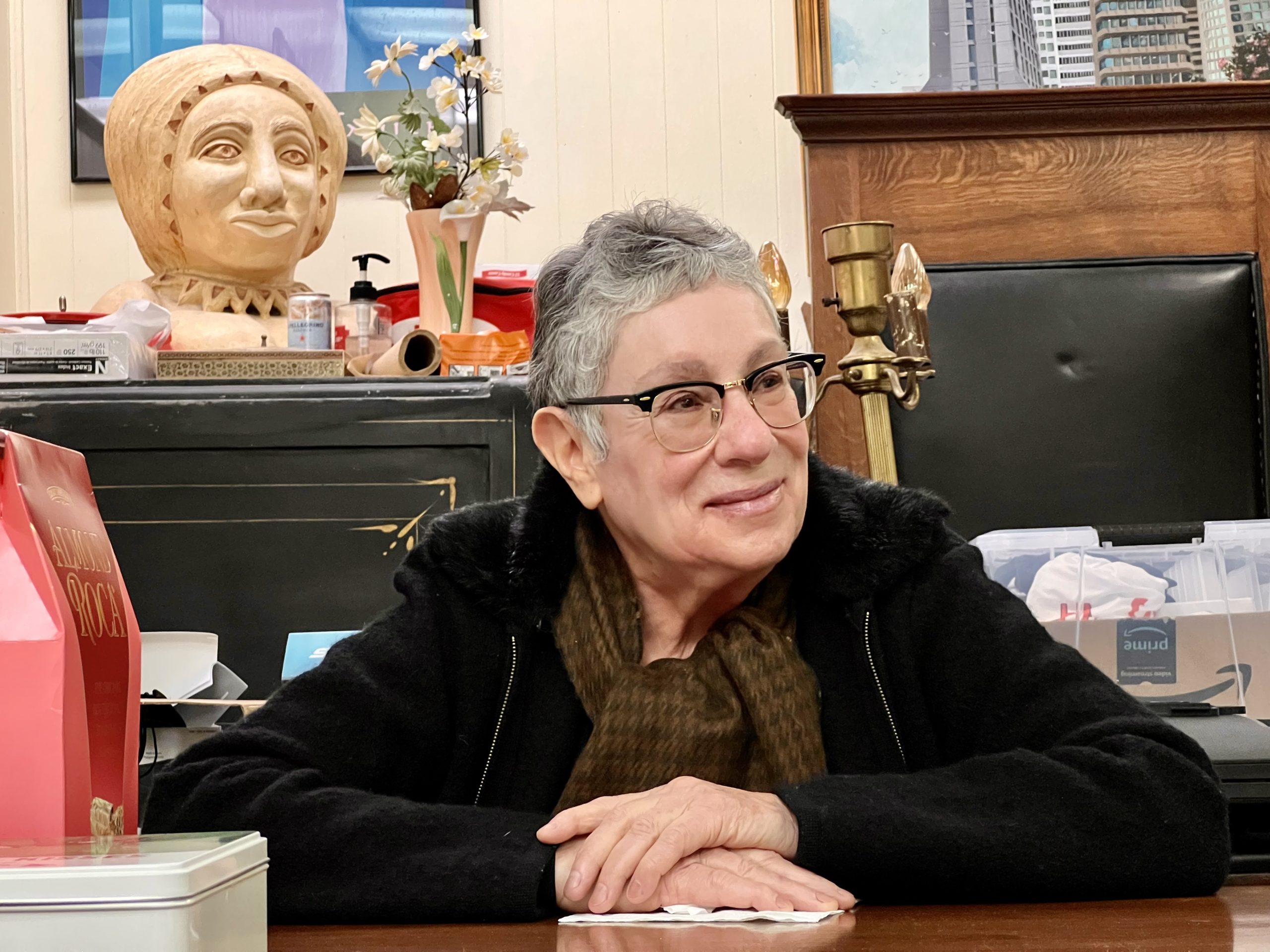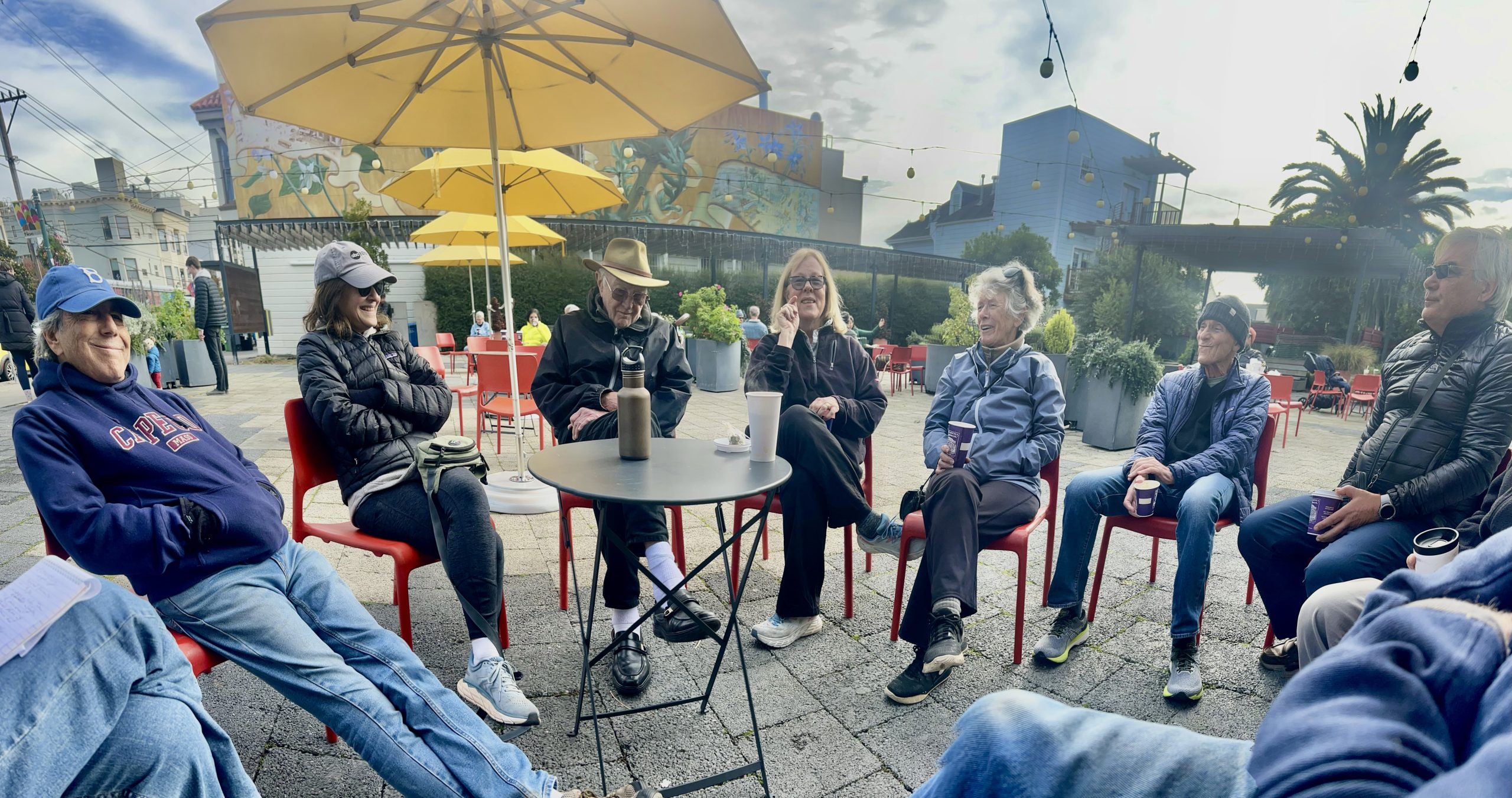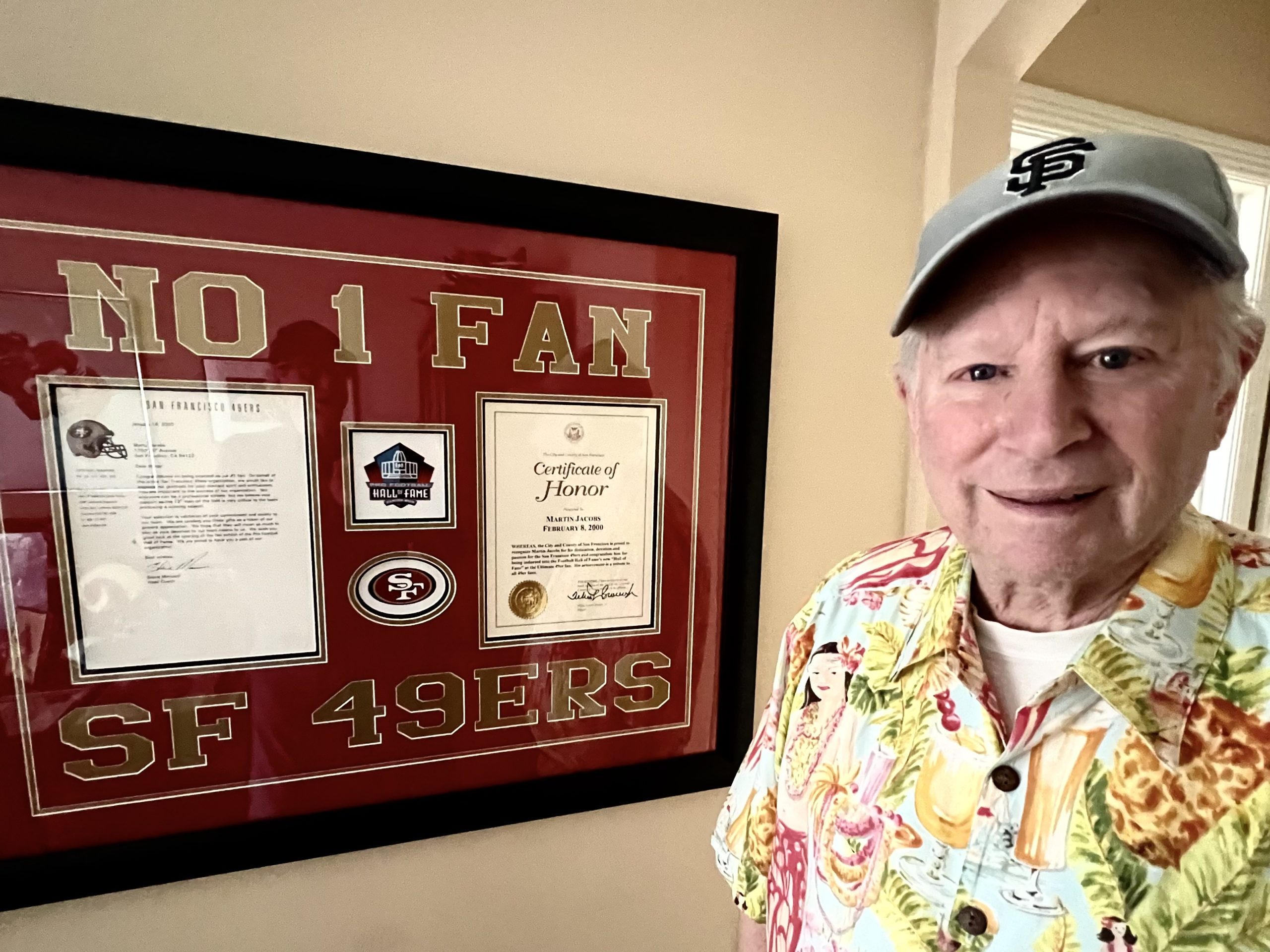Starting over in the U.S. at 62: Her family was exiled by the Nazis then the Russians. Eventually, she followed other family members to America.
It didn’t bother Shulamis Koyfman that her family thought she’d probably fail the California Board of Nursing licensing exam; she thought so, too. After all, she was 65, she’d only lived in the United States for three years and her English was, she recalls, not so hot.
“Honestly, I was 100 percent sure I would fail, but I said to myself, ‘Well, I will try, I will try. I can at least say I tried. I was ready to do any work when I came here, but of course I preferred my profession.”
Koyfman, a pediatric nurse in her native Moldova for 40 years, arrived in San Francisco with her grown son, Iosif, in 1997 to join her daughter, son-in-law and grandson. She was then 62 and recently widowed. All her relatives had left Moldova. “One sister and family were already settled in Israel; the other was in New York. No one was left.“
A good life in Moldova
Koyfman met the challenge of learning English and preparing for the nursing exam with rigor and a complete lack of self-pity, qualities that served her well through her tumultuous life: the war years, antisemitism, hunger, collectivization, poverty and displacement.
Shuulamis was born in 1935 in Moldova, when it was part of Rumania. Her Jewish family consisted of her parents and two sisters. Her father ran a general store that carried everything from candy and oranges to household supplies like paint and nails. Her dad would go to Rumania to stock up, It was a good life.
Then in 1941 the Nazis came. “We were given the chance to get on trains going East, unknown where we’d end up.”
It turned out to be Alma-Ata, Kazakhstan in Soviet Central Asia. “We were taken in by Muslim families who had no idea what a Jew was,” she laughs, “but they fed us and housed us. We were all poor, Muslims and Jews. There was nothing to eat but I learned to speak Kazakh.”
Koyfman has a penetrating gaze, a fierce intelligence and a curiosity about the world that has seen her through evacuation, exile and immigration.
They took the store
“We came back to Moldova after the war ended in 1945 and had to start over. We’d lost our store and our home. The Soviets came and nationalized our store —no private ownership allowed.”

Her father took a job in a warehouse, the girls went back to school and life resumed. Until 1949, when she was 14. “We got a knock on the door late at night – ‘Gather your things, you are being sent into exile, the whole family’ – that was the time of collectivization and my father was considered an enemy of the people because he’d had a store. They sent us to Kurgan, in the Ural Mountains.”
There, they were given a choice where to live: in barracks with other exiles or in one room in a schoolhouse, where they would be assigned to be janitors. They chose the schoolhouse, because her mother feared losing their Jewishness in the barracks.
“That was a tough time,” she said. “We went to the forest with my papa and cut and chopped wood for the woodstove. We dug deep holes in the earth to store potatoes in. All we had to eat were bread and potatoes, and some relatives back in Moldova sent us parcels with sugar for our tea, and canned meat. Papa prayed every day that we could go home.”
Enemy of the state
Though they were told their exile was forever, they were allowed to go home after Stalin died. In 1957, she was 22 and starting all over again, this time in Kishinev, Moldova’s capital. Still, as daughters of an “enemy of the people,” she and her sister were allowed only two career paths: agronomy or nursing.
“We could not be teachers or doctors,” she said. “My sisters and I were smart, good students. We were tempered by our hard lives, we became nurses.”
Back from that flash of the past, she remembers her first years in America. Her daughter, Rosa, son-in-law and grandson had come a year before. Koyfman and Iosif rented a dark converted garage in the foggy part of town. It was all they could afford on their refugee assistance.
“When I was sad in my soul that I lived in a damp cement garage, I said to myself, ‘You are not hungry. This is not Siberia. You are not in exile with no toilet and no heat.’ “

But she was 62 and babysitting to earn money. She enrolled in English classes at the Jewish Vocational Service and took a Certified Nurse Assistant course. “My first goal was to earn money, of course, but most important to me, through working I could meet Americans and learn real English.”
Babysitting turned out to be not such a bad gig. “I am so lucky: I worked at the fanciest hotels on Union Square, babysitting for wealthy tourists, and I worked for poor families with disabled children. I won’t forget the Mexican family whose son had cerebral palsy: four lived in one room with their bedridden child. I was so moved; they kept that little room so clean and their child was so loved and cared for,” she said.
“I couldn’t speak Spanish, just Yiddish, Russian, English, Moldovan, but Moldovan was a little like Spanish, so I understood them.”
‘Paid to sit in the park!’
Today, at 85, Koyfman speaks English clearly with a mild accent. “Back then, my accent, oh my accent. I said to one mother who hired me regularly for her little boy, a very rich woman in a house like a palace in Mill Valley – I took Golden Gate Transit to San Rafael and then another bus to her place – I said, ‘Why you want me? I speak such bad English. Don’t you worry your son will learn wrong English like I speak?
And she answered me, ‘Not at all, I want you to teach him some Russian. Can you imagine?” she shakes her head. “With that child, I went to the park three times a week. In my whole life, I never had time to sit in a park, and here I am being paid to sit in the park!”
Iosif started out washing dishes but then found stable work as a security guard. Their bottom line improved. They moved into a subsidized apartment on McAllister Street. She earned a nursing assistant certificate and went to work as a caregiver for adults.
“My first adult client was an alcoholic and drug addict in his 50s who lived in an SRO on Hyde Street in the Tenderloin. He told me he was an old hippie. He was so educated and intelligent,” she said. “For him, I cleaned up his room and cooked one meal daily. Two hours a day. I felt free with him, unjudged about my English so we could talk about politics and history. Thanks to him, I learned to talk in full sentences.”
A nurse once again
She felt sorry for him, being alone and sick. His family was in Minnesota. “He had terrible depression. He was a ‘Hermaphrodit’ (transgender). You know my agency staff called him ‘she’ but I always called him ‘he.’ He helped me understand official letters I got. He helped me with translating my documents. We were friends. When his mom visited from Minnesota, he brought her to visit me, to my garage. I baked Jewish pastries for them.”
By 2000, Koyfman had taken a four-month refresher course for émigré nurses at Mt. Zion Hospital. She submitted her diploma and transcripts from her graduation 50 years ago to the Board of Licensed Vocational Nursing in Sacramento and was accepted to sit for the exam.
“Every job I had I took my textbooks with me. If the children slept, I studied,” she said. “After I cleaned the house and folded the laundry, I studied. On the long bus rides to get to my clients, I studied.”
She was still skeptical she would pass because the test questions weren’t only about medicine, but how to react in various situations. “They are tricky. I had to understand what they wanted from me, in those questions.”
Waiting for a MUNI bus after taking the exam in the summer of 2000, she burst into tears. “I cried and cried because I was so nervous and I’d put so much pressure on myself and was sure I’d failed. I thought ‘What do I need this burden for?’ “
Then she dried her tears and went to work in the Tenderloin.
Four weeks later, she opened the plain white envelope that contained the results. “Even when I opened it I did not believe it. I called my American client; I asked her ‘Can you tell me what this means?: ‘You have PASSED.’ ”
At home with in-home care
Did she celebrate? No. She went to work. “At that time, I was working with a mentally ill American lady on Monterey Boulevard who paid me to chop vegetables for salads. Imagine, she would only eat raw vegetables and peanut butter and jelly sandwiches. She started having falls. She was so weak, so I added delicious fried potatoes to her diet. After all, I wanted her to be healthy so I could keep my job.”
In-home care suited Koyfman. Two days a week she worked with disabled children. Getting her nursing license at 65, she felt too old to work in a nursing home or hospital. Eventually, the agency she worked for promoted her to licensed vocational nurse.
“My son and I felt rich. We had enough to live on and to take trips,” she said. “We went twice to Israel, on a cruise to Mexico and one to Alaska. Under Soviet times, we hadn’t been allowed to travel. I went back to Moldova to visit my husband’s grave. Those were the best years.”
Then, in 2003, she was knocked to the ground by a homeless woman on Market Street and broke her hip. After surgery and four weeks in rehab, she decided it was time to retire.
“My doctor said to me, ‘That’s enough Shulamis,” she said. “I was almost 70 and my doctor said it was too much for me. I was very sad to stop working, but I limped now; my leg was not strong.”
Time for synagogue
Koyfman continued taking English classes at the Jewish Family and Children Services, visiting and socializing with friends she made in class, even taking some bus tours. She began attending synagogue services, which she hadn’t had time for.
Then, in 2012, her son, roommate and traveling companion died suddenly of a stroke at the age of 46. “That was the worst of all things of my life,” she said simply. “I told myself I had to keep living for Rosa, my daughter ,and her family. I had to keep going.”
That’s all she says about that. She wants to say what is good, now, in her life:
- She, and all the elderly residents of her subsidized apartment complex, have been vaccinated.
- Every Friday a rabbi delivers fresh challah to her and other Jewish residents.
- Every day she talks to her far-away sisters, 89 and 83, on WhatsApp. That they are well.
- She makes strawberry jam with dollar boxes of bruised strawberries from Safeway. And apple blintzes with old apples.
- She can still remember all her former patients with gratitude, and thanks them for helping her discover America.






Judy Greengard
This was an incredibly affecting story. It left me teary-eyed and hungry to know more about Shulamis and her family. I look forward to many such deeply-felt human interest stories from this writer.
Jennifer
What an extraordinary, touching, encouraging story! Thank you for sharing what is truly great about America and her people, new and old.